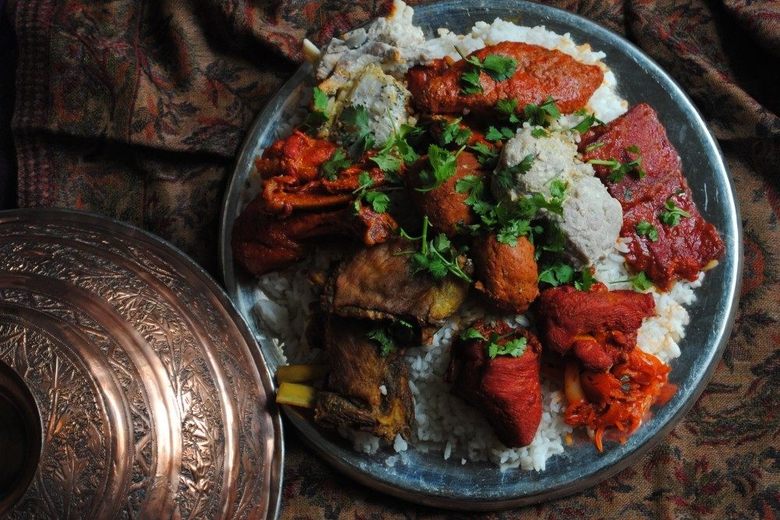Wazwan is a cuisine denoting cultural pride of Kashmir, which people proudly identify with
Last week, Bollywood director Vivek Agnihotri, who was in Kashmir for the shooting of his film, took to micro-blogging site Twitter “to bring about a change” in a traditional Kashmiri cuisine “Wazwan” from non-vegetarian to vegetarian food.
“Nobody knows how to make a vegetarian Wazwan in Kashmir. But I am here to bring about change. #TheKashmirFiles.(sic),” Aghnihotri tweeted while sharing a picture of having a vegetarian thali at a Srinagar hotel with a lookalike “mutton kebab” on the plate.
However, the tweet didn’t go down well with the Kashmiri Twitter and Facebook users, who went all guns blazing to give Agnihotri some lessons about Kashmir and its culture.
The netizens reminded the Bollywood director that there was no such thing as “vegetarian Wazwan” and neither there would be in future. Agnihotri eventually succumbed under pressure and deleted the tweet.
So, why did Agnihotri’s “vegetarian Wazwan” hit nerves of Kashmiris. Well, Kashmir is known for its distinctive culture and traditional values. And Wazwan is a cuisine denoting cultural pride, and which people of Kashmir proudly identify with.
Cooking Wazwan is an art. It requires a special set of skills to prepare multi-course mutton cuisine. The spicy and flavoured cuisine ranges from seven to 36 courses. Largely mutton.
In the Kashmiri language, waz means ‘cook’ or ‘cooking’ and wan means ‘shop’. The multi-course meal is usually served on special occasions, like on weddings, engagement ceremonies or other special functions at home.
Though the serving of Wazwan is a centuries-old tradition in Kashmir, it’s origin still remain dubious.
One theory has it that it came from Iran during the 14th century. The other theory has it that the Wazwan came from Central Asia, while many say that Wazwan is an indigenous cuisine of Kashmir.
Known as ‘The Kings Feast’, Wazwan in old times used to be the meal of riches, but with with gradual improvement of economic condition among people, Wazwan slowly became a household cuisine in Kashmir.
Wazwan is a pure organic cuisine prepared on an open fireplace in big copper pots. The main ingredient of Kashmiri Wazwan is freshly-slaughtered lamb meat. In rural Kashmir, people also slaughter bulls to prepare the meal. Each part of the animal is prepared with different spices to give it a different taste. The mutton is milled on a stone with the help of a wooden hammer while many parts are minced with a big knife on a wooden table. Spices plays an important part in preparing Wazwan. Various spices like shonth (dried ginger), dalchini (cinnamon), elaichi (cardamom), laung (cloves), badyan (fennel) are used in the Wazwan to give the meal a special taste and aroma.
Wazwan takes hours to cook. Usually, the meat is minced a night before the main wedding function, while the cooking starts early in the morning next day to be served to guests around afternoon.
The Wazwan is served with a mound of rice on the big copper plate known as ‘trami’. It requires four people to start the course.
The main courses that are usually served in Wazwan include Methi Maaz, Kabab, Tabakmaaz, Daniphol, Rista, Rogan Josh, Daniwal Korma, Aab Gosh, Marchhwangan Korma, and Gushtaba.
Meanwhile, in response to Aghnihotri’s “Non-vegetarian Wazwan” tweet, senior journalist Naseer Ganai wrote, “Biggest insult hurled to Wazwan ever. If goshtaba will hear it, he will commit suicide in aab-ghosh!.”
For Placing online order can visit www.KashmirStore.in OR www.KashmirBazar.in




